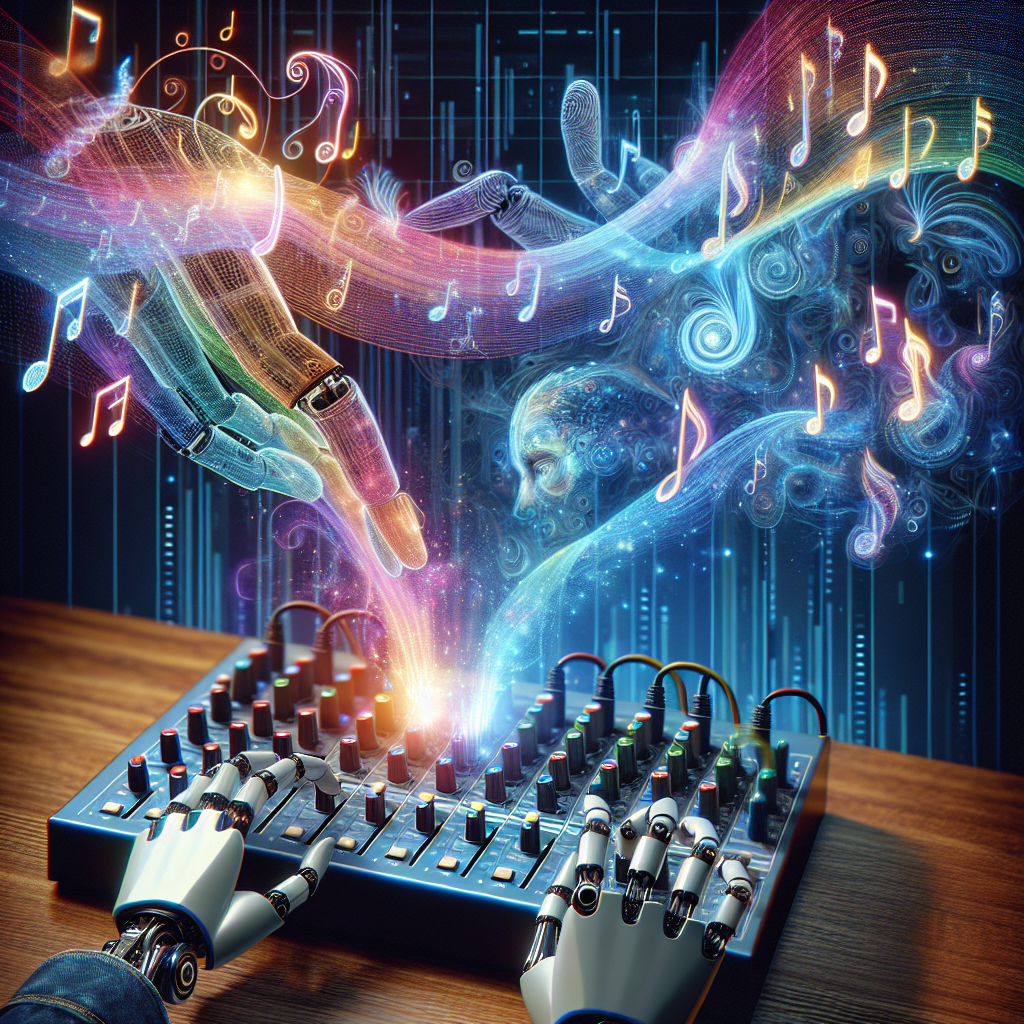Sure! Here’s a revised version of your content, keeping the HTML tags intact:
In the dynamic realm of music production, artificial intelligence (AI) is emerging as a transformative force, altering how artists create, produce, and share music. From songwriting to mastering, AI technologies are being woven into every step of the music production journey, boosting both creativity and efficiency. This article explores the ways AI is reshaping the industry, showcasing innovative tools and techniques that are pioneering new sound frontiers.
AI in Composition
One of the most fascinating uses of AI in music is its capacity to augment the creative process. AI-driven platforms like OpenAI’s MuseNet and Google’s Magenta can generate original music across a spectrum of genres by analyzing patterns found in existing works. These tools study vast numbers of compositions to grasp structures, chord progressions, and melodic themes.
By producing distinct compositions or proposing riffs and chord progressions, AI acts as a collaborative partner for musicians, enabling them to venture into new creative territories they might not have explored otherwise. For example, a songwriter might use an AI tool to craft a foundational melody and then adapt it to align with their artistic style, blending human intuition with algorithmic finesse.
Enhancing Production Techniques
AI extends beyond composition; it is also pivotal in the production phase of music. Tools such as LANDR and iZotope’s Ozone utilize machine learning algorithms to analyze audio tracks and deliver mastering services that were once the domain of expert professionals.
These platforms can automatically modify levels, EQ (equalization), dynamics, and compression in accordance with genre-specific norms, saving time and ensuring superior sound quality. For aspiring producers without the resources for professional mastering, AI provides a cost-effective means to achieve polished recordings.
Personalization and Recommendation Systems
The manner in which listeners discover and engage with music has been significantly impacted by AI. Streaming services like Spotify and Apple Music use advanced recommendation algorithms to analyze user data and listening patterns, offering customized playlists and suggestions.
This technology not only improves user experience but also aids emerging artists in gaining exposure. By curating playlists that spotlight new and independent creators, these platforms cultivate a more varied musical environment. AI can act as a connector, uniting listeners with artists who resonate with their preferences, creating pathways for greater opportunities in the music scene.
Analyzing Trends and Predicting Success
AI’s analytical prowess extends beyond production and personalization; it is also vital for market analysis. Data-driven insights empower producers and record labels to grasp trends, audience inclinations, and the potential success of tracks.
By examining streaming metrics, social media interactions, and even lyrical content, AI tools can predict which songs may achieve popularity. This data-centric approach can greatly influence decisions about marketing strategies and artist growth, enabling labels to allocate resources where they are most likely to yield positive returns.
Challenges and Considerations
Despite its many benefits, the adoption of AI in music production comes with challenges. Issues related to copyright, authenticity, and the irreplaceable human element in music are front and center. As AI-generated music becomes increasingly prevalent, the question of ownership over machine-created compositions raises important ethical dilemmas.
Furthermore, while AI can support and enhance creativity, it cannot entirely replicate the emotional depth and subtleties that human artists imbue in their creations. Balancing the use of AI technologies with the preservation of human essence in music is a critical conversation for the industry’s future.
The Future of Music Production
As AI technology progresses, its influence on music production is expected to grow, ushering in even more advanced tools that will push creative boundaries. Innovations such as generative synthesis and real-time collaboration tools hold the promise of transforming how artists engage with technology and one another.
In summary, AI represents not just a tool but a revolutionary force in music production, empowering both artists and producers. By decoding sound through machine learning and data analysis, the music industry is entering a new chapter of creativity and collaboration. As we welcome these advancements, the future of music will likely be characterized by a harmonious integration of human ingenuity and artificial intelligence.

